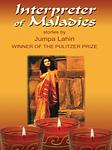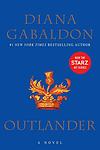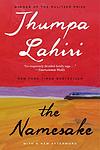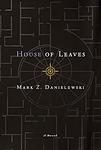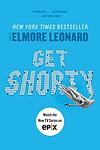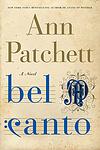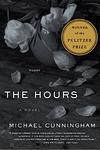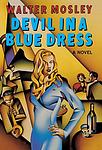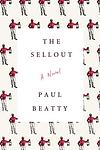The Greatest American "Fiction" Books Since 1990
Click to learn how this list is calculated.
This list represents a comprehensive and trusted collection of the greatest books. Developed through a specialized algorithm, it brings together 290 'best of' book lists to form a definitive guide to the world's most acclaimed books. For those interested in how these books are chosen, additional details can be found on the rankings page.
Genres
Countries
Date Range
Reading Statistics
Click the button below to see how many of these books you've read!
Download
If you're interested in downloading this list as a CSV file for use in a spreadsheet application, you can easily do so by clicking the button below. Please note that to ensure a manageable file size and faster download, the CSV will include details for only the first 500 books.
Download-
26. The Human Stain by Philip Roth
The Human Stain is a novel that explores the life of Coleman Silk, a classics professor in a small New England town who is forced to retire after accusations of racism. The story delves into Silk's personal history, revealing that he is a light-skinned African American who has been passing as a Jewish man for most of his adult life. His affair with a much younger, illiterate janitor further scandalizes the community. The novel examines themes of identity, race, and the destructive power of public shaming.
-
27. The Virgin Suicides by Jeffrey Eugenides
The novel is a haunting and tragic tale of the five Lisbon sisters who live in suburban America in the 1970s. Their strict, overbearing parents keep them isolated from the world, leading to a sense of mystery and intrigue about the girls in their community. This fascination turns into morbid curiosity when one of the sisters commits suicide, and the remaining sisters become even more sheltered. The story is narrated by a group of neighborhood boys who are obsessed with the girls, and their suicides, trying to piece together the reasons behind their tragic ends.
-
28. Jesus' Son by Denis Johnson
The book is a collection of linked short stories narrated by a young, unnamed protagonist who struggles with drug addiction. The stories are set in various locations across the United States and are filled with surreal and sometimes violent experiences. Despite the bleak circumstances, the narrator seeks moments of beauty and grace, often finding them in unexpected places. The narrative is characterized by its disjointed chronology, hallucinatory descriptions, and dark humor.
-
29. Memoirs of a Geisha by Arthur Golden
This novel is a historical fiction that provides a rich exploration of life in Japan before World War II, through the eyes of a young girl sold into the geisha lifestyle. The protagonist is trained in the arts of entertaining wealthy and powerful men, navigating a world of jealousy, love, and social politics. Her journey is one of resilience and survival as she strives to find personal happiness in a society that views her as a commodity.
-
30. The Hunger Games by Suzanne Collins
Set in a dystopian future, the novel revolves around a teenager named Katniss Everdeen, who lives in a post-apocalyptic nation where the government, in order to maintain control, forces each of its twelve districts to send a boy and girl to participate in a televised annual event. This event, known as the Hunger Games, is a fight to the death. When Katniss's younger sister is selected to participate, Katniss volunteers to take her place. The book follows her struggle for survival in the cruel game, against the backdrop of a brewing rebellion against the oppressive regime.
-
31. Interpreter of Maladies by Jhumpa Lahiri
"Interpreter of Maladies" is a collection of nine short stories, each exploring different aspects of life, love, and identity. The stories are set in both India and America, and the characters often grapple with issues of cultural identity, displacement, and the complexities of relationships. Themes like marital issues, communication breakdowns, and the struggle to fit in are prevalent throughout the stories, offering a poignant and nuanced glimpse into the human experience.
-
32. Outlander by Diana Gabaldon
The novel follows a World War II nurse who accidentally time travels back to 18th century Scotland. There, she meets a handsome and brave Scottish warrior and is torn between her loyalty to her husband in her own time and her growing love for the warrior. As she becomes more entwined in the past, she must navigate the dangers of a time not her own, including political unrest and violence, while trying to find a way back home.
-
33. The Namesake by Jhumpa Lahiri
The novel tells the story of Gogol Ganguli, a second-generation Indian-American, who struggles with his unique name and his dual cultural identity. Born to immigrant parents from Kolkata, India, Gogol is named after the famous Russian author, Nikolai Gogol, a decision that shapes his life in unexpected ways. As he grows up, he finds himself torn between his parents' traditional Indian values and his desire to fit into mainstream American society. This internal conflict is further complicated by his relationships with women of different cultural backgrounds. The book explores themes of identity, cultural assimilation, and the immigrant experience.
-
34. House of Leaves by Mark Z. Danielewski
The novel is a complex and multi-layered narrative that revolves around a young man who comes across a manuscript written by a blind man about a documentary that doesn't appear to exist. The documentary is about a family who moves into a house that is larger on the inside than it is on the outside, with shifting walls and hallways that lead to impossible spaces. The novel is known for its experimental layout, with some pages containing only a few words and others filled with footnotes, different fonts, and sideways text, reflecting the disorienting and labyrinthine nature of the house itself.
-
35. Jurassic Park by Michael Crichton
A billionaire entrepreneur, with the help of genetic scientists, creates a wildlife park on a secluded island filled with genetically engineered dinosaurs. When a small group of experts are invited to the park for a preview, things go awry as the security systems fail and the dinosaurs break free. The group must survive and escape the island while dealing with the dangerous prehistoric creatures and the moral implications of tampering with nature.
-
36. The Lovely Bones by Alice Sebold
A teenage girl is brutally murdered in her small town, and from her new home in heaven, she watches over her family and friends as they struggle to cope with her loss. She also keeps an eye on her killer, hoping that he will eventually be brought to justice. Through her observations, she explores the complexities of human relationships, the ripple effects of her death, and the concept of moving on while still holding onto memories.
-
37. The Plot Against America by Philip Roth
This novel presents an alternate history where aviator-hero and rabid isolationist Charles Lindbergh is elected President in 1940, leading the United States towards fascism and anti-Semitism. The story is narrated through the perspective of a working-class Jewish family in Newark, New Jersey, experiencing the political shift and its terrifying consequences. The narrative explores themes of prejudice, fear, patriotism, and family bonds under the shadow of a fascist regime.
-
38. Get Shorty by Elmore Leonard
A Miami loan shark travels to Los Angeles to collect a debt from a low-budget movie producer, only to get entangled in the Hollywood scene. Through a series of events, he ends up pitching a movie idea based on his own life as a mobster. This comedic crime novel explores the similarities between the film industry and organized crime, while offering a satirical look at the behind-the-scenes workings of Hollywood.
-
39. Bel Canto by Ann Patchett
In an unnamed South American country, a lavish birthday party is thrown for a powerful businessman, with a famous opera singer as the guest of honor. The party is interrupted by a group of terrorists who take everyone hostage, demanding the release of their imprisoned comrades. As weeks turn into months, the hostages and their captors form unexpected bonds. The story explores the relationships that develop under these extraordinary circumstances, and the transformative power of music and love.
-
40. The Hours by Michael Cunningham
The novel is a reimagining of Virginia Woolf's "Mrs. Dalloway" and follows three women from different time periods, each of whom are profoundly affected by Woolf's work. The narrative alternates between Virginia Woolf as she writes "Mrs. Dalloway" in 1923, a 1950s housewife who is reading the novel, and a contemporary woman who is essentially living the life of the titular character. These three storylines eventually converge in a powerful exploration of mental illness, sexuality, and the transcendent power of literature.
-
41. Devil in a Blue Dress by Walter Mosley
Set in 1940s Los Angeles, the novel follows an African American war veteran who, after losing his job, becomes a private investigator to pay his mortgage. He is hired to find a white woman known to frequent African American jazz clubs, and in the process, he gets entangled in a web of political scandal and corruption. The story explores themes of race, class, and the complex social dynamics of the time.
-
42. Cryptonomicon by Neal Stephenson
The book is a sprawling narrative that intertwines two timelines: the first during World War II, focusing on the efforts of cryptographers and mathematicians working to break Axis codes, and the second in the late 20th century, following a group of entrepreneurs and hackers establishing a data haven in Southeast Asia. The novel explores themes of cryptography, mathematics, and the history of computing, weaving together real historical figures with fictional characters. As the plot unfolds across different continents and eras, it delves into the impact of information technology on society and the perpetual conflict between governments and individuals over the control of information and privacy.
-
43. No Country for Old Men by Cormac McCarthy
This novel is a gripping tale of a cat-and-mouse chase set in the harsh landscape of 1980 Texas. After stumbling upon a drug deal gone wrong and a suitcase full of money, a Vietnam War veteran finds himself pursued by a relentless hitman. As the veteran attempts to keep himself and his wife safe, a local sheriff struggles to keep up with the increasing violence and brutality of the modern world. The narrative explores themes of fate, conscience, and circumstance, painting a bleak and riveting picture of the human condition.
-
44. The Fifth Season by N. K. Jemisin
A woman searches for her kidnapped daughter in a world ravaged by a catastrophic climate change event known as the Fifth Season. Simultaneously, the narrative follows a young girl with destructive powers and a man struggling to control his own similar abilities. The story explores themes of oppression, survival, and the destructive power of nature, all set in a dystopian world where the earth is constantly in flux, and society is strictly divided and controlled.
-
45. The Underground Railroad by Colson Whitehead
This novel follows the journey of Cora, a young slave on a cotton plantation in Georgia, who escapes and embarks on a journey towards freedom via the Underground Railroad. The book presents a literal version of the historical Underground Railroad, portraying it as a physical network of tunnels and tracks beneath the Southern soil. As Cora travels from state to state, she encounters different worlds and harsh realities, each one illuminating the various forms of oppression Black people faced in America. The narrative is a brutal exploration of America's history of slavery and racism, and a testament to the unyielding spirit of those who fought against it.
-
46. The Time Traveler's Wife by Audrey Niffenegger
The novel tells the story of a man with a genetic disorder that causes him to time travel unpredictably, and his wife, an artist who has to cope with his frequent absences and dangerous experiences. Their love story endures many separations and dangerous experiences due to his condition. The story's central theme is the effects of time travel on their marriage and their passionate love for each other.
-
47. The Sellout by Paul Beatty
This satirical novel follows the story of an African-American man living in a small, agrarian town on the outskirts of Los Angeles. After his father's death, he attempts to reinstate slavery and segregation in his town as a means of creating a sense of identity for himself and his community. The novel explores themes of racial identity and equality in America, challenging societal norms and expectations through its provocative narrative.
-
48. A Lesson Before Dying by Ernest J. Gaines
Set in the pre-Civil Rights South, the novel explores the story of a young black man wrongfully accused and sentenced to death for a crime he didn't commit. A local schoolteacher, at the request of the man's godmother, attempts to help the condemned man gain a sense of dignity and self-worth in the final days of his life. The story grapples with issues of racial inequality, justice, humanity, and moral obligation.
-
49. Parable Of The Sower by Octavia E. Butler
In a dystopian future where society has collapsed due to environmental and economic crises, a young woman named Lauren Olamina possesses a unique ability to feel the pain and pleasure of others. As she witnesses her community being torn apart by violence and religious fanaticism, Lauren embarks on a perilous journey to find a new safe haven and establish her own religion based on empathy and survival. Through her thought-provoking narrative, the book explores themes of resilience, spirituality, and the power of human connection in the face of adversity.
-
50. Mating by Norman Rush
"Mating" is a novel that follows the story of a female anthropologist who is doing her fieldwork in Botswana. She falls in love with an eccentric and charismatic intellectual who has created a utopian matriarchal village in the Kalahari desert. The narrative explores themes of love, feminism, and idealism as it delves into the complexities of human relationships and societal structures.
Reading Statistics
Click the button below to see how many of these books you've read!
Download
If you're interested in downloading this list as a CSV file for use in a spreadsheet application, you can easily do so by clicking the button below. Please note that to ensure a manageable file size and faster download, the CSV will include details for only the first 500 books.
Download




